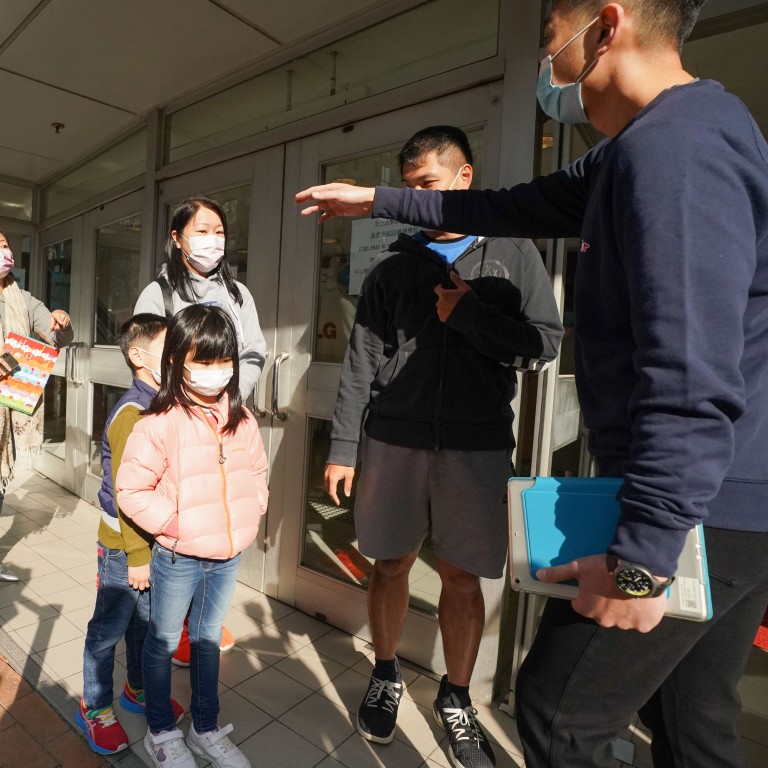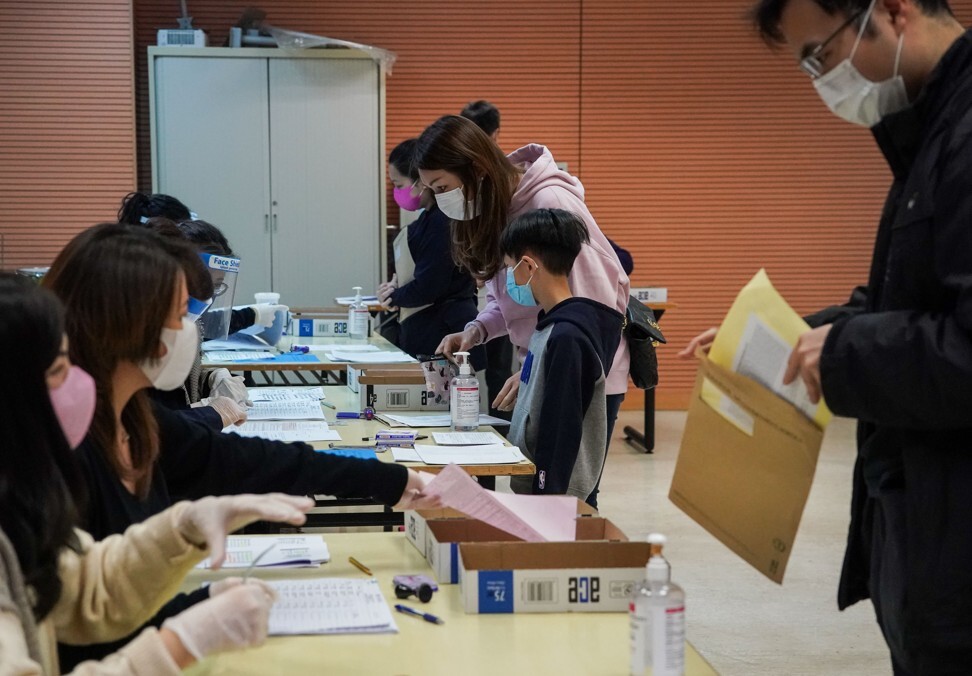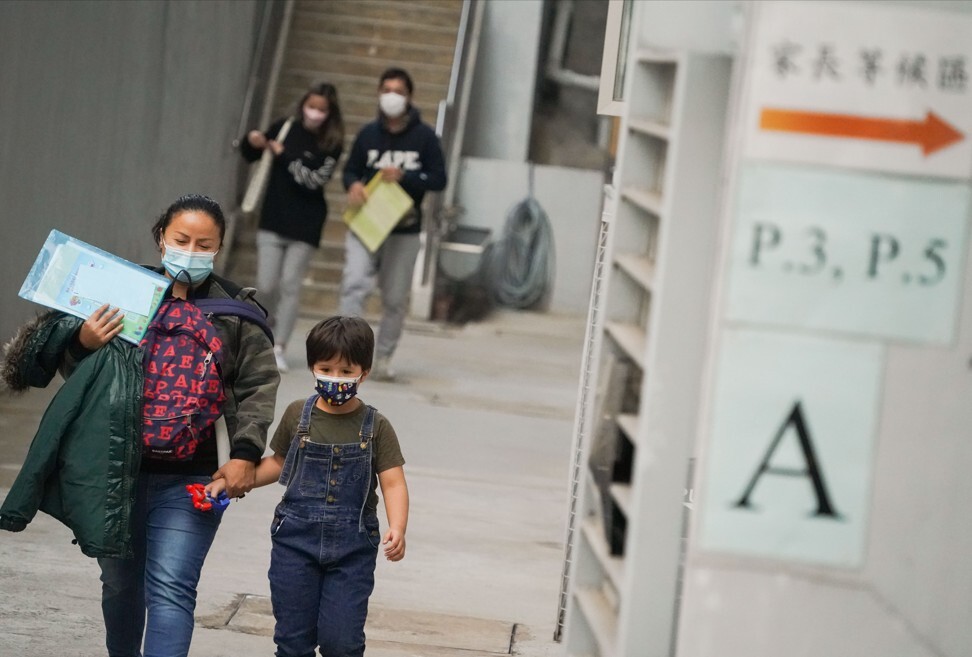
Hong Kong’s Covid-19 travel curbs are fuelling drop in applications for primary school places, Education Bureau says
- Despite less competition from cross-border pupils, families remain anxious over whether they will be matched with preferred schools
- Officials estimate a 10 per cent drop in applications under the centralised allocation of Primary One places, a process which opened on Saturday
The Education Bureau estimates that 26,642 six-year-old pupils will apply for the centralised Primary One placements for the 2021-22 academic year – about 2,500 fewer than last year.
Hong Kong’s school year will not be extended, government says
The centralised allocation – the second phase of Primary One applications candidates who were unsuccessful at the discretionary stage of the process – accounts for about half of all the places offered by local primary schools. Computer-generated results from the process, which started on Saturday, are due out in early June.
Some 23,107 children already secured places during the discretionary stage in November, with 46.4 per cent of students allocated their school of choice under a points system, the highest success rate in a decade.

The anticipated drop in total applications for 2021-22 to more than 49,700 contrasts with the government previously forecasting a rising number of eligible pupils for the year.
The initial expectation was for 59,200 applications across both admission stages in 2021-22, about 3,500 more than the previous year.
There were only 300 such cross-border students applying for a place this year, compared with the peak in recent years of 3,251 in 2017. The figure fell to 2,213 in 2018, 799 in 2019 and 407 last year.
Dip in Form One applications, but fierce competition in elite schools
Chu Wai-lam, vice-chairman of the New Territories School Heads Association and principal of Fung Kai No 1 Primary School in Sheung Shui, said the decline in applications could amount to lower levels of competition generally, but places at elite schools would remain highly sought after.
“There can be many reasons for the drop in applications. The pandemic is one, and some parents might opt for letting their children retake [one year in kindergarten] amid online lessons,” he said.
“The social unrest [in 2019] as well as more families choosing to emigrate recently might also be some of the reasons attributing to the decline.”
But he expected the impact on primary schools of emigrating families to be limited, as most parents wanted their children to study locally when they were younger.

A father surnamed Lam was among the parents currently in the Primary One application process who showed such a preference, saying he was mulling sending his son overseas for secondary school.
“I studied in Australia during my senior secondary years, and in Britain for university,” said the father, who is in his 40s. “If I have the financial ability, I hope he can experience the atmosphere studying in an overseas country.”
Echoing that sentiment was another parent surnamed Pang, who said: “For primary school, I’m still confident in the education system, as it’s mostly grooming children’s [foundation] and discipline.
“But for secondary school education, I feel a lack of confidence in terms of [whether] students’ individual and critical-thinking skills can still be developed.”
Parents watch and wait as places allocated for Hong Kong primary schools
Both fathers were among the anxious parents who on Saturday morning submitted application forms at a designated centralised application centre located at La Salle Primary School near Kowloon City.
“This is one of the city’s top schools, and they also have more places available. Boys studying there also have a lot of choices in terms of extracurricular activities,” Pang said of La Salle, his child’s first choice.
A mother, surnamed Fung, said she was also thinking about sending her son elsewhere for his education, but added she still had confidence at this stage in the local education system.
“It also depends on how Hong Kong might change by the time [my son] is bigger,” she said.
She added: “Although fewer people may be applying this year, I still feel very nervous. This [allocation process] is after all very important to parents.”

